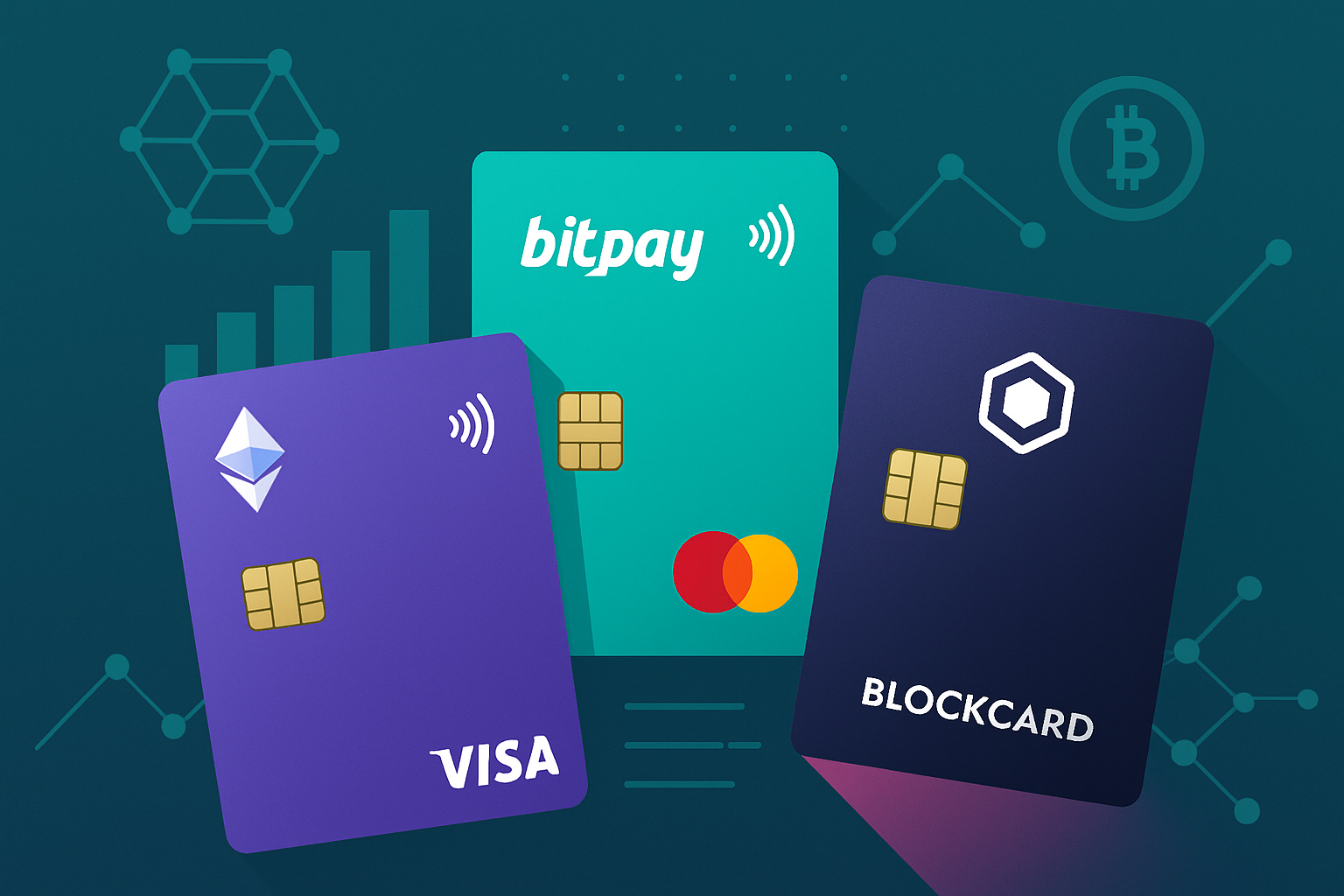
Privacy-conscious crypto users are increasingly turning to no-KYC crypto credit cards as we move through 2025. With regulatory scrutiny and data breaches on the rise, these cards have become essential tools for those seeking true financial autonomy and anonymous spending. This guide breaks down the top 10 no-KYC (or minimal-KYC) crypto credit cards available this year, each chosen for its privacy features, ease of use, and commitment to user anonymity.
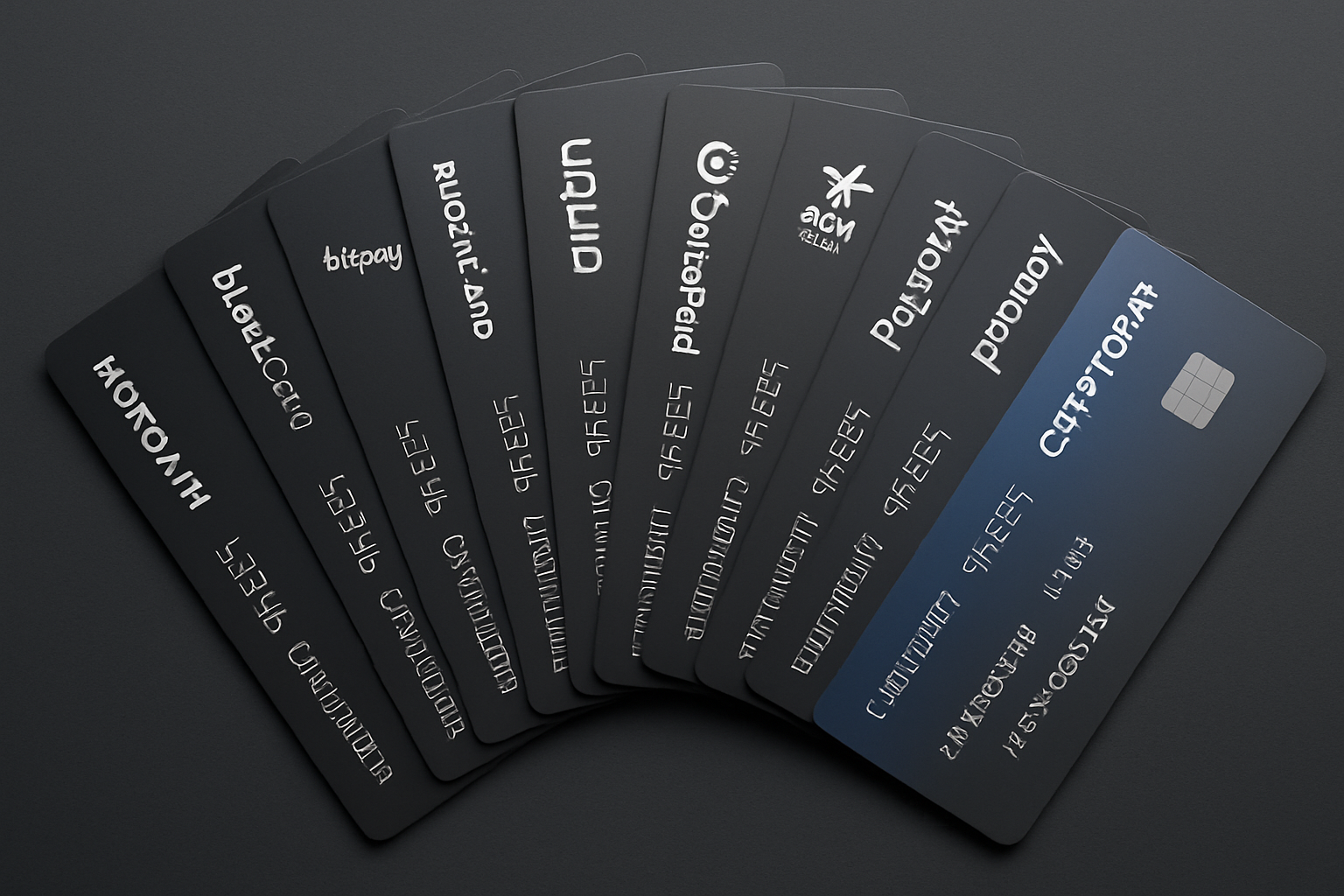
Why No-KYC Crypto Credit Cards Matter in 2025
The landscape for private payments is evolving. Traditional banks and card issuers demand comprehensive identity checks, often leaving privacy advocates with limited options. In contrast, anonymous crypto cards allow users to spend digital assets globally without intrusive KYC procedures. These solutions are not just about convenience; they are about safeguarding your personal information and maintaining sovereignty over your finances.
The following list has been curated based on real-world usability, privacy standards, fee structures, and support for a range of cryptocurrencies. If you’re searching for the best no-KYC crypto credit card for true anonymity in 2025, this resource will help you make an informed decision.
The Top 10 No-KYC Crypto Credit Cards for Anonymous Purchases in 2025
Top 10 No-KYC Crypto Credit Cards for 2025
-
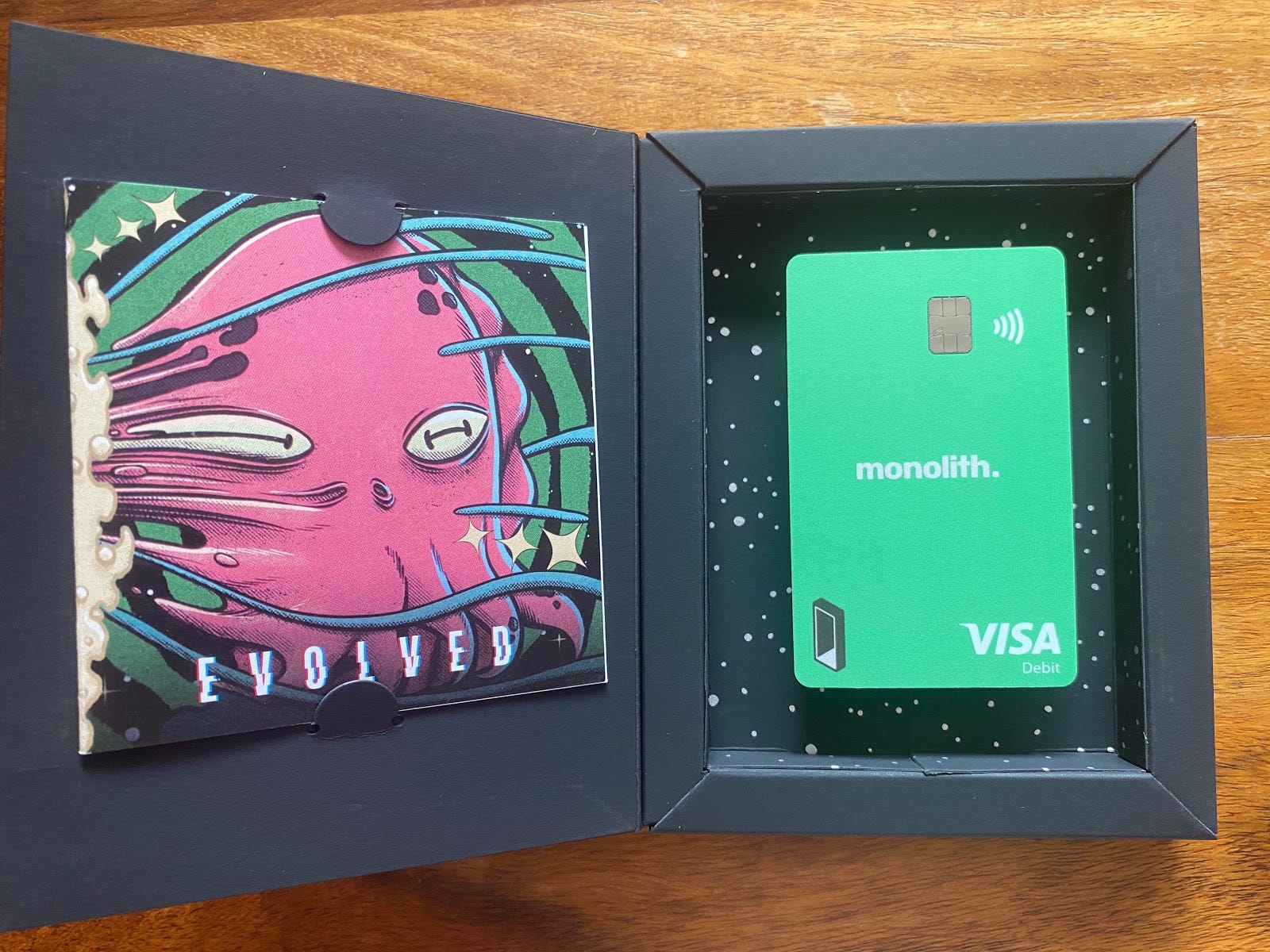
Monolith Visa Card: Monolith bridges Ethereum assets to real-world spending, offering a Visa debit card funded directly from your Ethereum wallet. No KYC is required for low-volume, in-app transactions, making it a privacy-friendly choice for ETH holders.
-
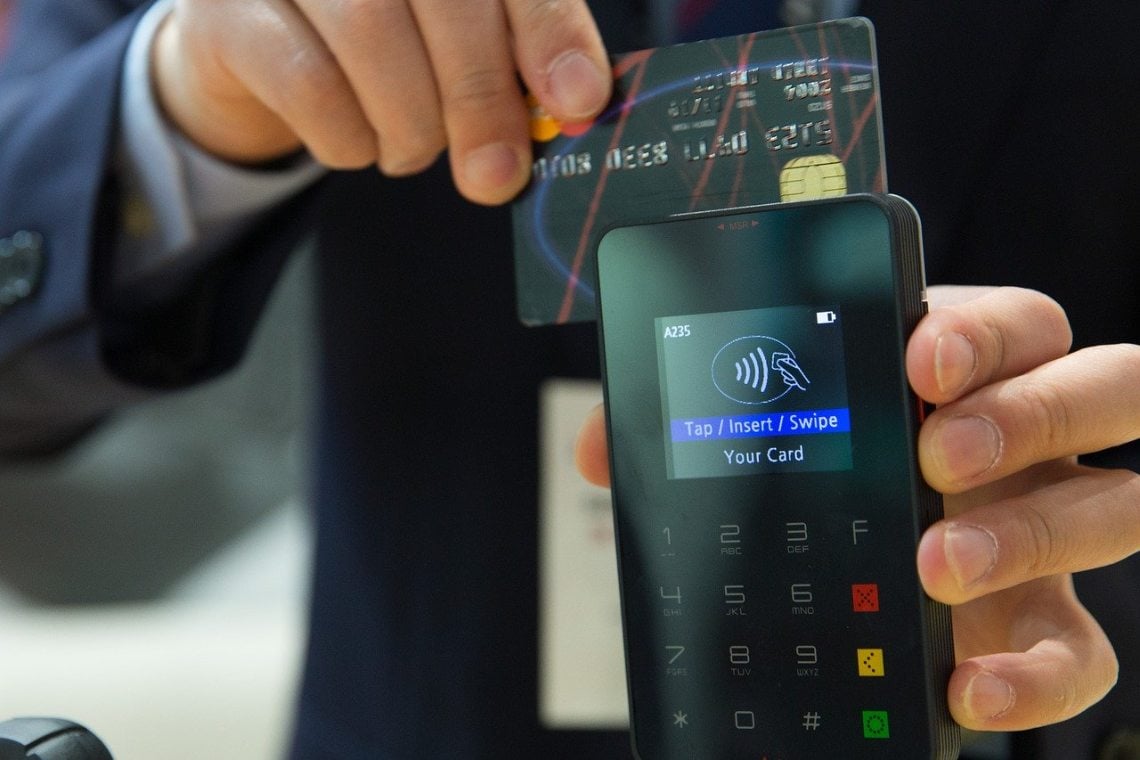
BitPay Prepaid Mastercard (with limited KYC): BitPay’s card allows users to convert crypto to USD for spending anywhere Mastercard is accepted. Minimal KYC applies for small amounts, enabling partial privacy for lower-volume users.
-
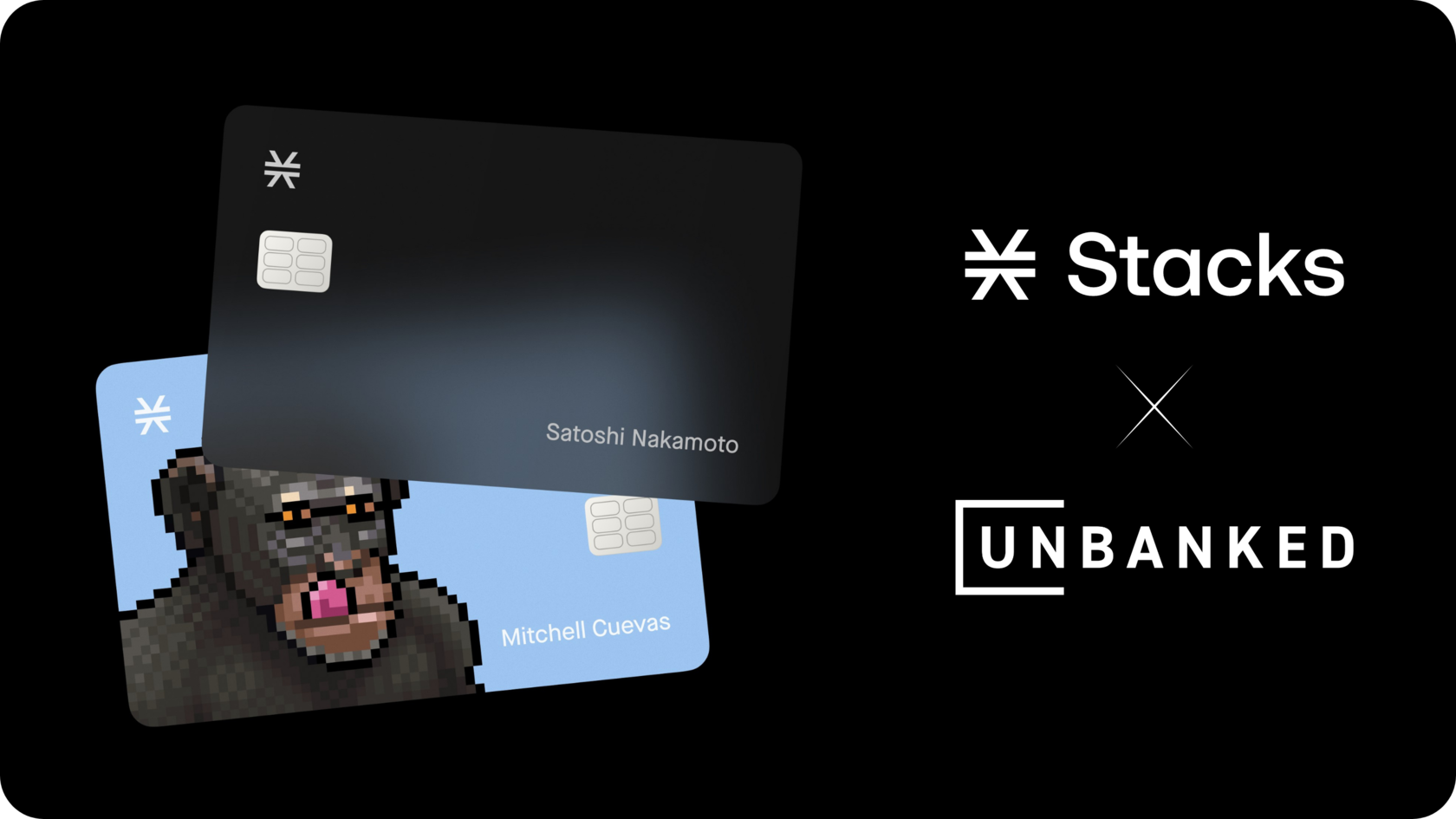
BlockCard by Unbanked: BlockCard supports multiple cryptocurrencies and offers both physical and virtual cards. Low KYC thresholds allow for anonymous spending up to certain limits, making it popular among privacy-conscious users.
-
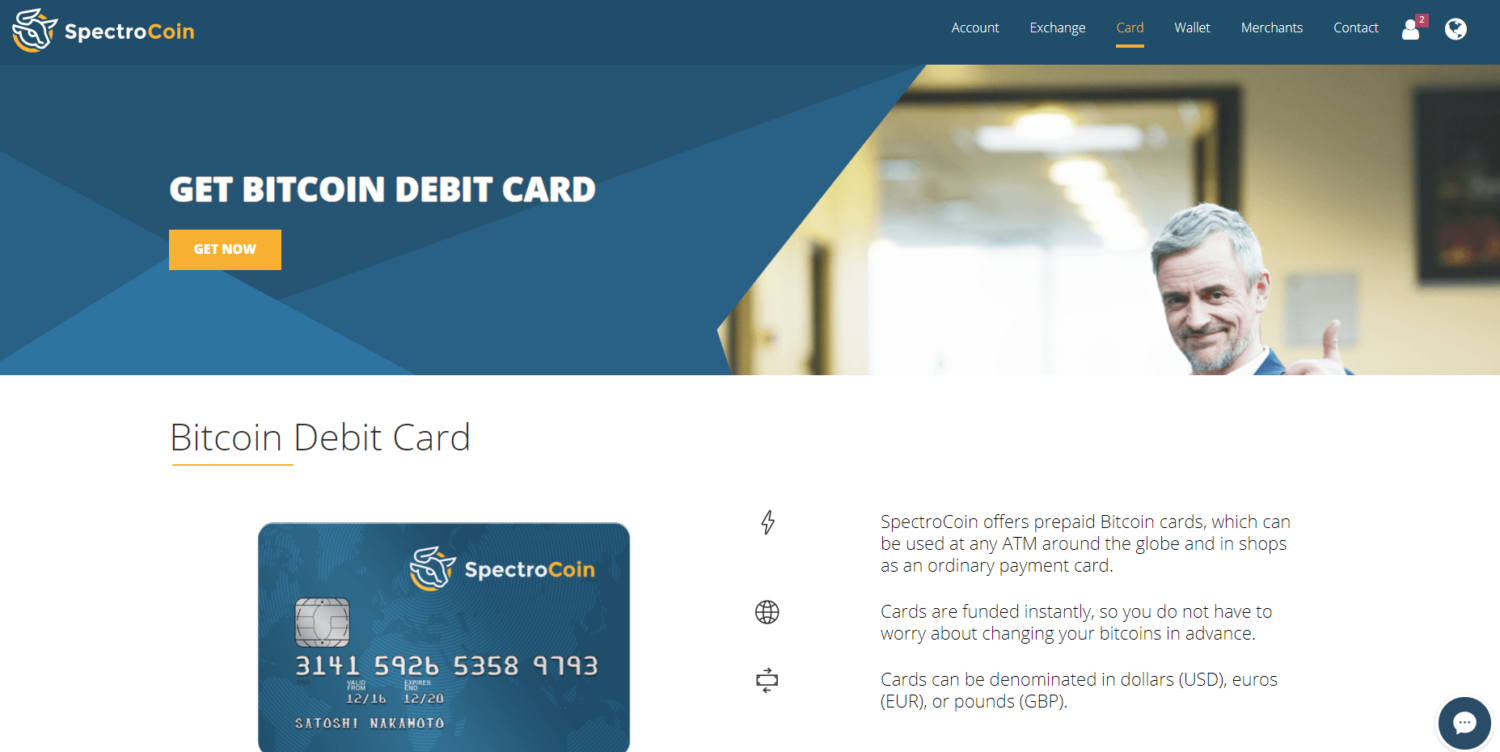
SpectroCoin Debit Card: SpectroCoin issues prepaid Visa and Mastercard options, supporting Bitcoin and other major cryptocurrencies. Minimal verification is required for small transactions, suiting users who value anonymity.
-

Uquid Crypto Card: Uquid provides both virtual and physical cards funded by a wide range of cryptocurrencies. No KYC is needed for low-value, virtual card usage, ensuring privacy for everyday purchases.
-

CoinsPaid Crypto Card: CoinsPaid enables seamless crypto-to-fiat conversion with their prepaid cards. Low KYC requirements make it accessible for privacy-focused users seeking global acceptance.
-
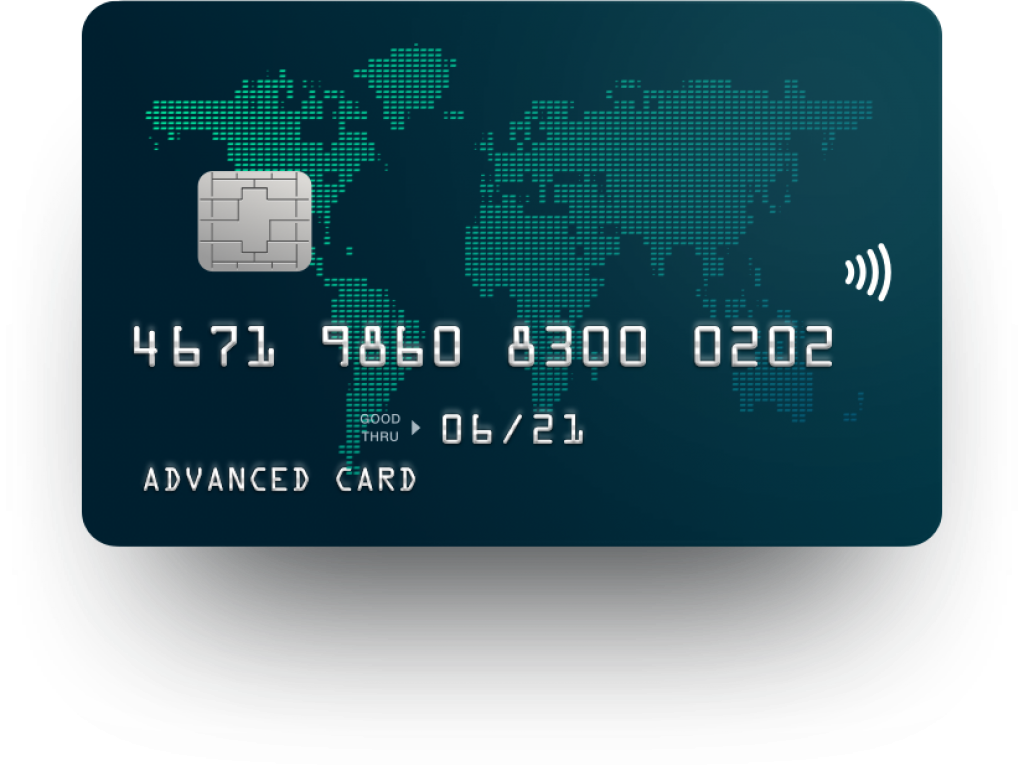
Advcash Crypto Card: Advcash offers virtual and plastic cards for spending crypto online or in-store. Minimal KYC is required for limited usage, making it suitable for users who prioritize discretion.
-
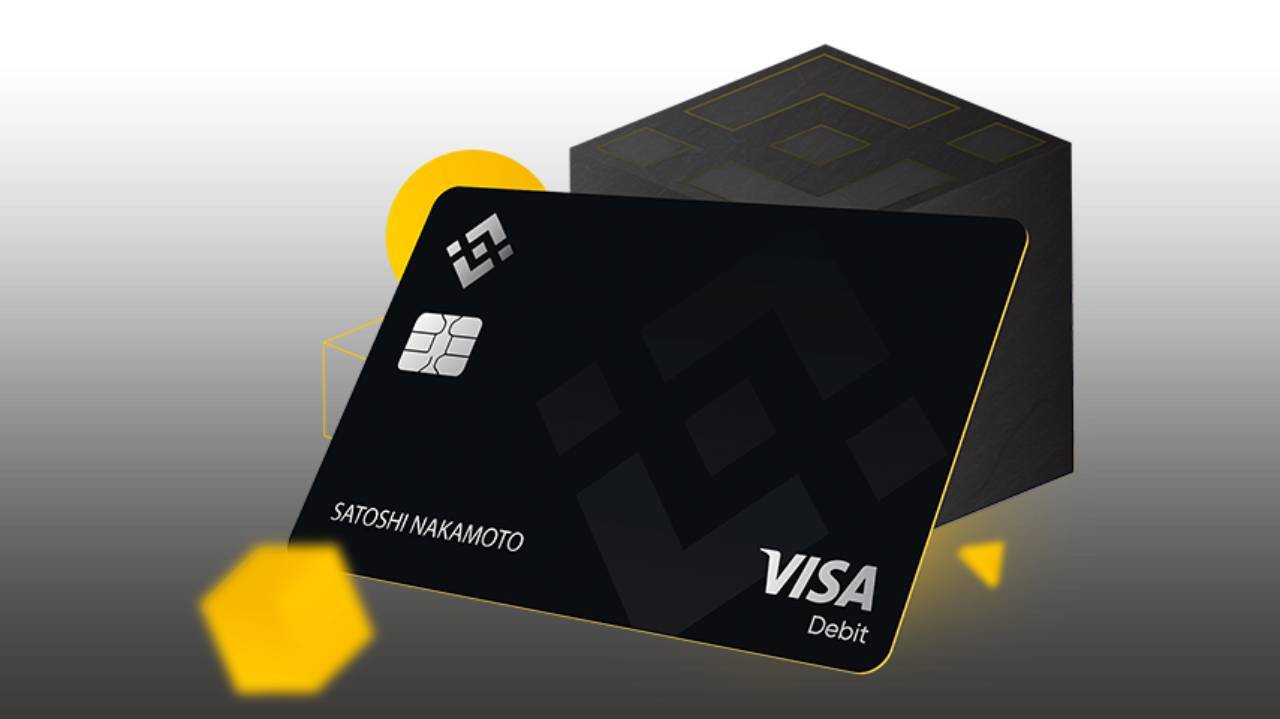
Paycent Crypto Card: Paycent supports multiple cryptocurrencies and offers instant conversion to fiat. Low KYC thresholds allow for anonymous transactions up to certain limits.
-
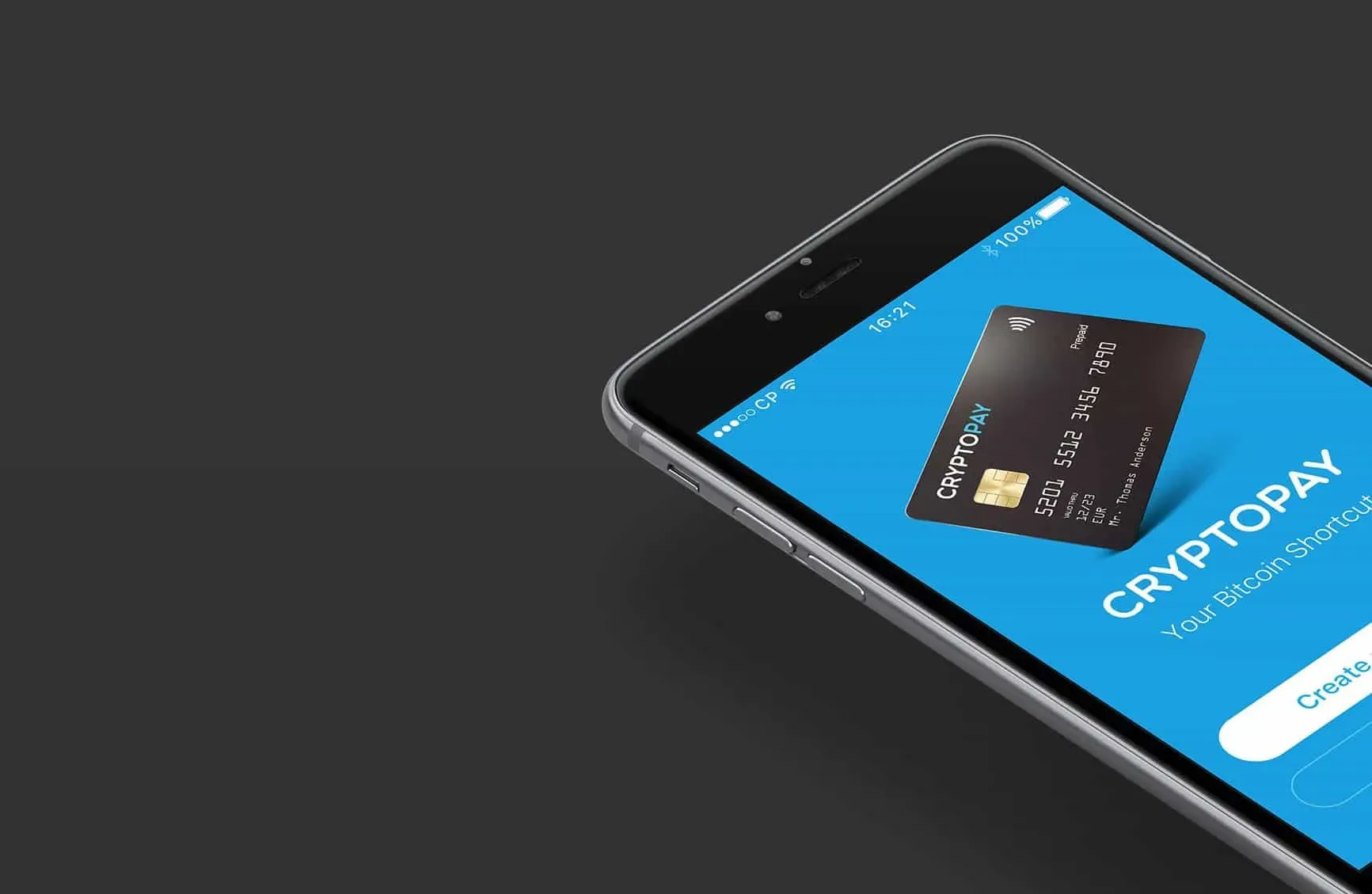
Cryptopay Prepaid Card: Cryptopay provides prepaid cards for spending Bitcoin and other cryptos. Basic verification is needed for small amounts, catering to users seeking privacy with convenience.
-
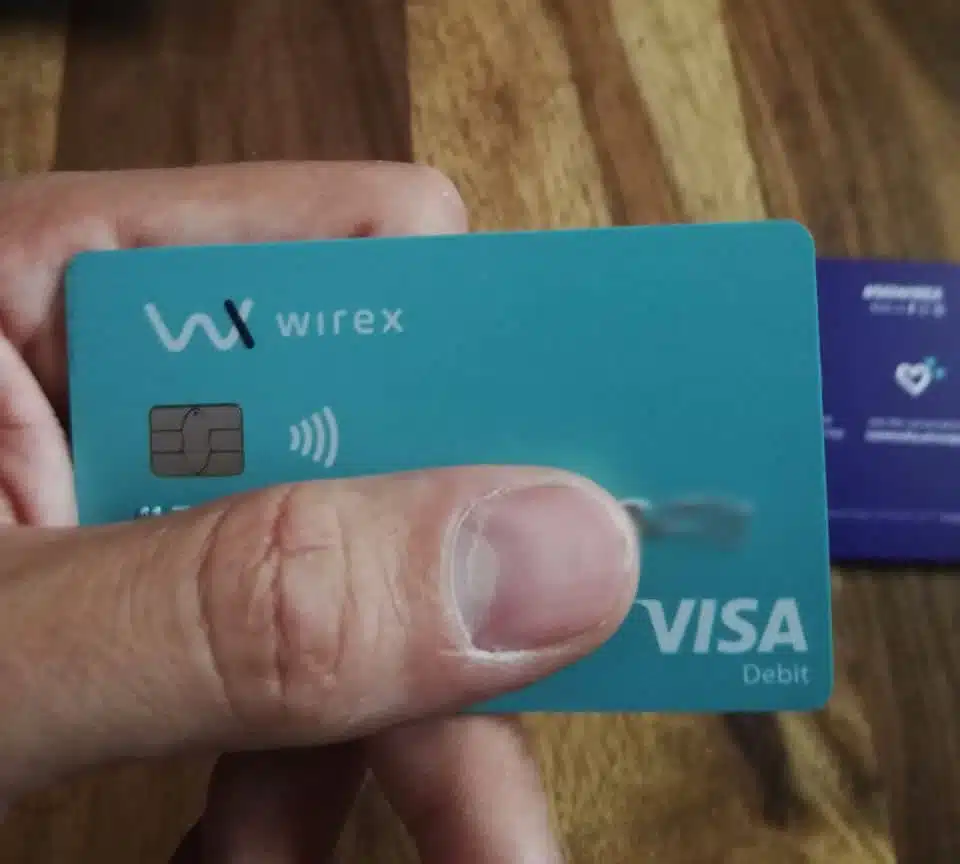
Wirex Anonymous Virtual Card: Wirex’s virtual card solution allows users to spend crypto online with minimal or no KYC for limited transactions, offering a blend of privacy and global usability.
Diving Deeper: Features That Set These Cards Apart
Monolith Visa Card: Known for its seamless Ethereum integration and non-custodial approach. Monolith lets users top up their Visa card directly from their Ethereum wallet without mandatory KYC for lower tiers. Purchases can be made anywhere Visa is accepted.
BitPay Prepaid Mastercard: While most features require some verification, BitPay allows limited spending with minimal KYC, ideal for those who want to test the waters before sharing personal details. Its global reach and support for multiple cryptos make it a popular entry point.
BlockCard by Unbanked: This card stands out by offering virtual and physical options with low identification requirements at lower limits. BlockCard supports instant conversion from crypto to fiat at the point of sale.
SpectroCoin Debit Card: SpectroCoin’s prepaid debit option is favored among privacy seekers thanks to its fast issuance process and acceptance in over 150 countries. Minimal documentation is required for smaller transactions.
The Next Tier: Flexible Limits and Multi-Currency Support
Uquid Crypto Card: Uquid offers both virtual and plastic cards with soft verification steps, often just an email address is required. Users can load the card with dozens of cryptocurrencies including BTC, ETH, LTC, DASH, USDT, TRX, and more.
CoinsPaid Crypto Card: CoinsPaid focuses on business users but individuals can benefit from its high transaction limits and minimal onboarding friction. The platform’s strong reputation in payment processing adds a layer of trust despite its privacy-first stance.
If you’re interested in comparing detailed perks like cashback rates or supported coins among these cards, see our comprehensive comparison at Top 10 No-KYC Crypto Credit Cards for 2025.
Advcash Crypto Card: Advcash has built a loyal following among privacy-focused users thanks to its quick issuance and ability to fund cards with a broad range of cryptocurrencies. The platform’s no-KYC policy for lower spending levels means you can get started with just an email, making it ideal for those who value discretion. Its flexible limits and competitive fees are also attractive for frequent travelers or freelancers paid in crypto.
Paycent Crypto Card: Paycent bridges the gap between digital assets and everyday purchases, offering both virtual and plastic cards. With minimal verification required for small balances, Paycent appeals to users who want to keep their transactions under the radar while enjoying the convenience of instant conversion between crypto and fiat currencies. The card’s global acceptance ensures you can spend your funds almost anywhere.
Cryptopay Prepaid Card: For those seeking a straightforward, privacy-preserving card solution, Cryptopay delivers. You can order a virtual card with only basic information, allowing you to spend Bitcoin and other supported coins online without unnecessary exposure of your identity. The Cryptopay mobile app further streamlines management while keeping your data secure.
Wirex Anonymous Virtual Card: Wirex’s anonymous virtual card is designed for online shoppers who prioritize privacy above all else. By limiting KYC requirements at lower usage tiers, Wirex lets you make anonymous purchases in multiple fiat currencies using your crypto holdings. Its integration with Apple Pay and Google Pay adds another layer of usability, making it a robust choice for private payments in 2025.
Key Considerations When Choosing an Anonymous Crypto Card
Selecting the right no-KYC crypto credit card is more than just comparing fees or supported coins; it’s about aligning the product’s privacy features with your unique needs. Here are some factors to weigh as you decide:
- Spending Limits: No-KYC cards typically come with tiered limits, ensure these match your expected usage patterns.
- Supported Cryptocurrencies: Some cards focus on Bitcoin and Ethereum, while others offer broader altcoin support.
- Geographic Availability: Not all cards are available worldwide, double-check regional restrictions before applying.
- User Experience: Look for intuitive apps, responsive customer support, and seamless top-up options via QR code or wallet integrations.
Trends Shaping Private Crypto Payments in 2025
The demand for anonymous crypto cards is rising as consumers grow more aware of surveillance risks in traditional finance. In response, card providers are innovating around soft KYC processes, many now allow higher spending thresholds before requiring additional identification. Additionally, multi-currency support and integration with mobile wallets like Apple Pay have become standard among top contenders such as Monolith Visa Card, Uquid Crypto Card, and Wirex Anonymous Virtual Card.
The competition among issuers has led to lower fees and better perks, such as cashback rewards and instant issuance, without compromising user anonymity. As regulations continue to shift globally, expect even more creative approaches to balancing compliance with privacy throughout the year.
Final Thoughts: Building Your Private Payment Toolkit
Navigating the world of no-KYC crypto credit cards in 2025 requires diligence but offers immense rewards for those who value privacy and flexibility. Whether you prioritize high spending limits (as seen with CoinsPaid or Uquid), seamless fiat conversion (BlockCard, SpectroCoin), or truly anonymous online shopping (Wirex Virtual), there is now a mature ecosystem of options tailored to every need.
If you’re ready to explore further or compare specific features side by side, our dedicated guides on anonymous online shopping, daily purchases, or private payments will help you find your ideal match as this fast-moving market evolves.






